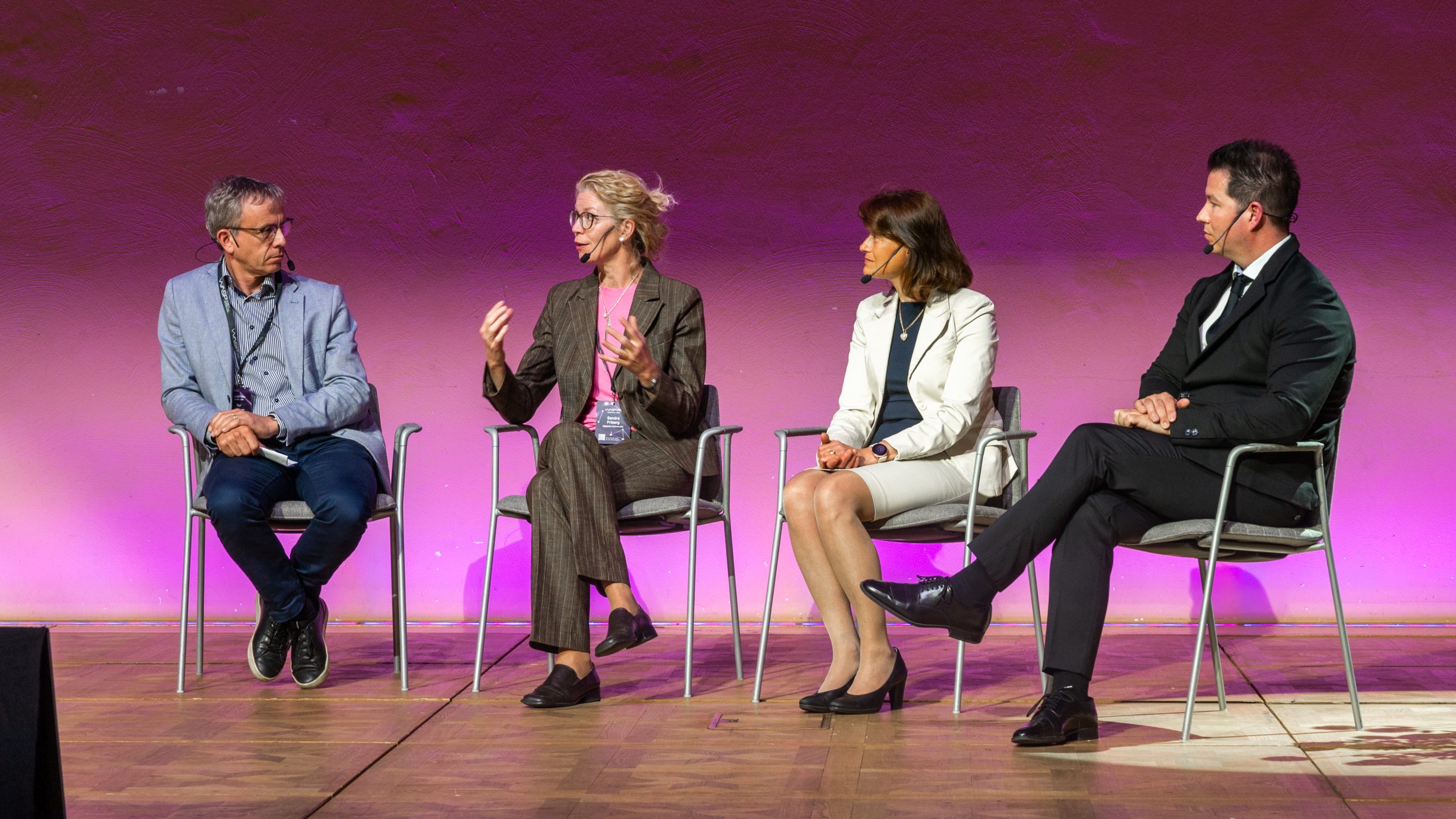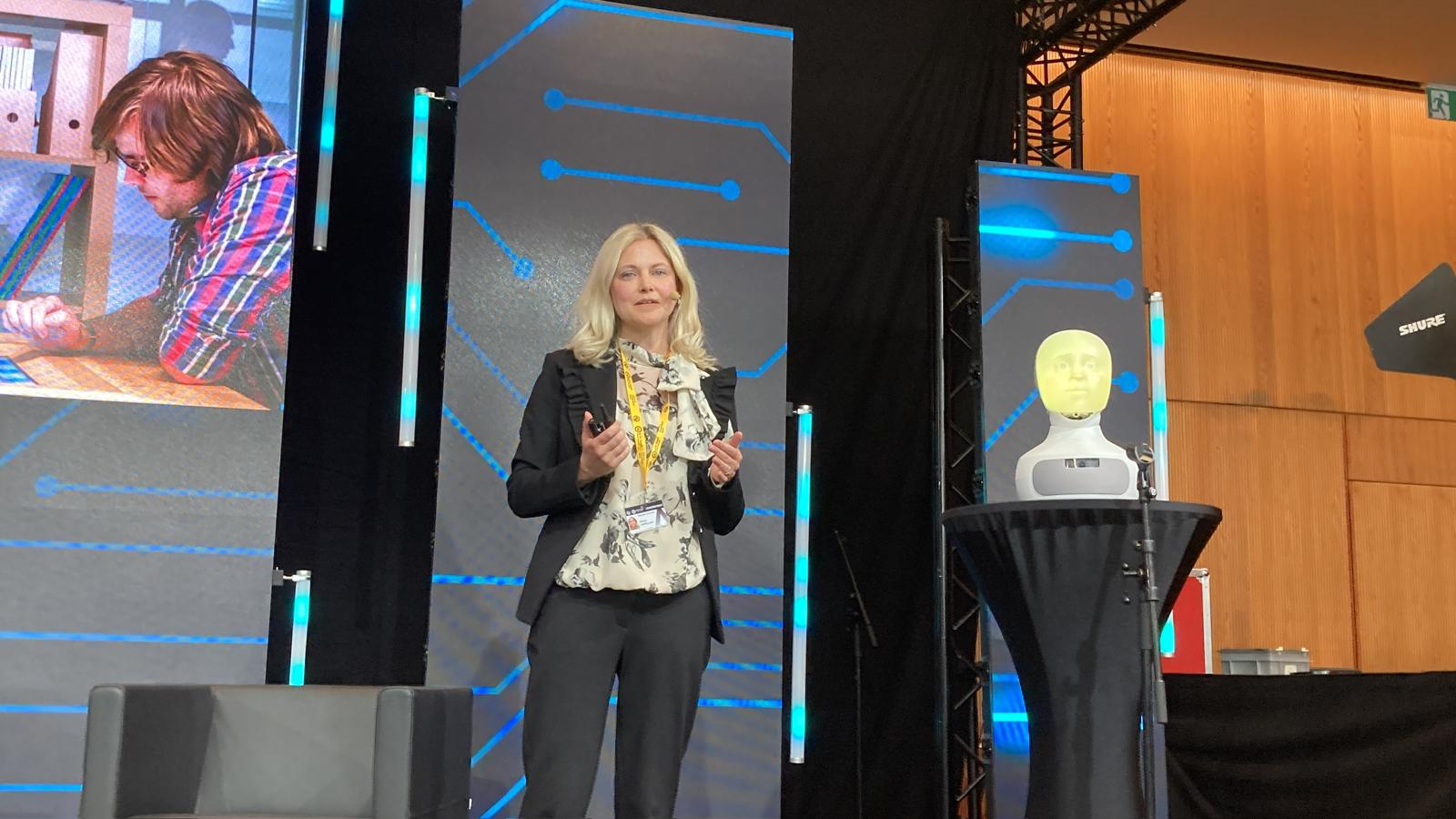On May 23, leading researchers and research leaders within AI from academia and industry gathered at Grand Hôtel in Stockholm for this year’s WASP4ALL conference. The highly current topic of the day was human-centered artificial intelligence (AI), and the discussions revolved around ethics, regulations and technology development.
WASP4ALL, which this year was a collaboration between the sister programs WASP and WASP-HS, aimed to raise the discussion on how we can continue to conduct research in a fast-moving field, while respecting regulations, considering ethics and protect human values and thereby rewarding the good use of AI.
Several of the speakers highlighted Sweden’s strengths in conducting research within AI.
“In Sweden, we have a good international position in terms of research and development, thanks to programs such as WASP and WASP-HS. A strength in Sweden is our ability to collaborate across different research areas – this is the focus on this year’s WASP4ALL”, says Anders Ynnerman, WASP Program Director, Wallenberg AI, Autonomous Systems and Software Program, and continues:
“I am convinced that the human-centered approach to AI is key to making the technology more productive and achieving the effect that we have envisioned for many years, as well as ensure that we can benefit from AI while avoiding problems. We need regulations, foresight and handling of data in a correct way.”
How the EU’s Regulations Affect AI Research and Development in Sweden
Sandra Friberg, Associate Professor at Uppsala University, and research leader within WASP-HS, shared her insights on AI development from a legal perspective. She talked about the EU’s regulatory framework, the AI Act, and highlighted the importance of cooperation between lawyers and those who develop AI. It is through cooperation across different subject areas that we can take steps towards responsible AI development, which further can create new opportunities and advantages in AI development and use.
Giovanni Leoni, Head of Business Strategy & Development at Credo AI, spoke about AI Governance from a business perspective. AI Governance is about creating the conditions for ethical AI systems. He believes that regulatory compliance in the AI field ultimately leads to better business and increases trust in the companies that incorporate it into their business model.
A panel discussion was held, led by Francis Lee, researcher at Chalmers University of Technology, and research leader at WASP-HS. Among other things, he reflected on the possibilities but also the risks of AI as well as how AI can be an asset for Sweden.
“AI is a transformative force in the world today, bringing opportunities to innovate in science and healthcare, enhance our cybersecurity, and improve industry efficiency. But like all technology it is a double-edged sword. Building a future with AI requires a strong collaboration between the technical and social sciences. This is why long-term partnerships between WASP and WASP-HS are vital for bridging both perspectives and promoting responsible AI for the benefit of all society”, says Francis Lee.
Future AI and Interdisciplinary Projects
Luc de Raedt, Wallenberg Chair Guest Professor, Örebro University and KU Leuven, spoke about a new wave in AI called Neurosymbolic Learning. By integrating symbolic reasoning with machine learning, he hopes to create more intelligent and flexible AI systems.
The day ended with further discussions and project presentations to concretely demonstrate how researchers already today combine humanistic and technical research.
Speakers at the Conference:
- Pontus de Laval, Chair of the WASP Board
- Sara Mazur, Executive Director, Knut and Alice Wallenberg Foundation
- Anders Ynnerman, WASP Program Director
- Francis Lee, Associate Professor, Chalmers University of Technology and research leader at WASP-HS
- Danica Kragic, Professor, KTH Royal Institute of Technology and WASP Co-Director
- Fredrik Heintz, Professor, Linköping University and WASP Graduate School Director
- Sandra Friberg, Associate Professor, Uppsala University and research leader at WASP-HS
- Giovanni Leoni, Head of Business Strategy & Development, Credo AI
- Per Runeson, Professor, Lund University
- Luc de Raedt, Wallenberg Chair Guest Professor, Örebro University and KU Leuven
- Iolanda Leite, Associate Professor, KTH Royal Institute of Technology
- Sara Ljungblad, Associate Professor, University of Gothenburg and Chalmers University of Technology
- Irina Shklovski, Guest Professor, Linköping University and University of Copenhagen Kenneth Bodin, CEO, Algoryx and Visiting Researcher, Umeå University
See the program here: https://wasp-sweden.org/event/wasp4all-2024/





